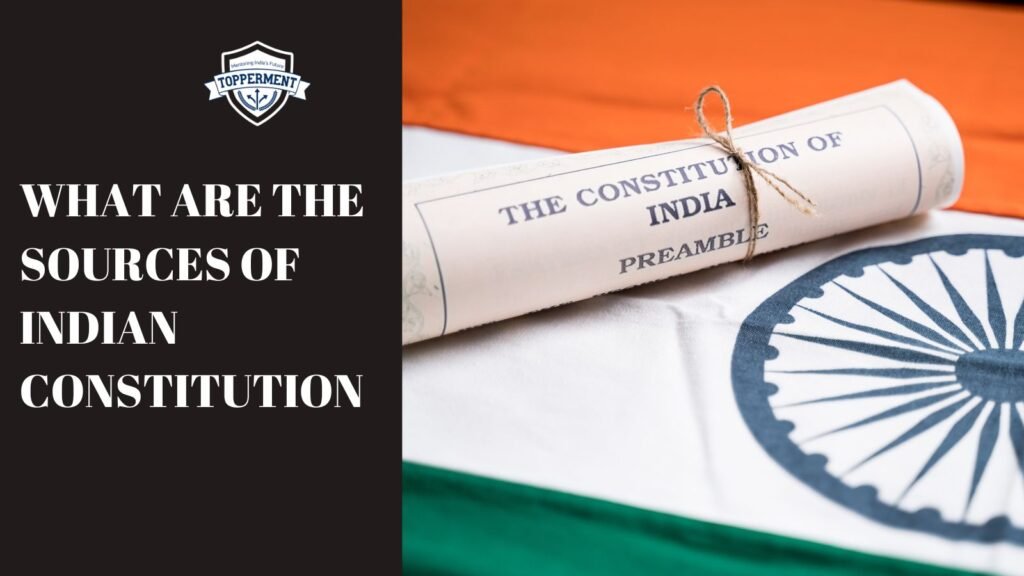The Indian Constitution is the backbone of the democracy in our country. It is an assurance for the citizens to have equal rights, justice, and support in society. Today we will study in detail the sources of the Indian constitution.
On 26th November 1949, the Indian Constitution came into existence. The constitution was designed from various sources that our country borrowed from other nations. Indian Constitution has adopted these features from other countries because they are quite suitable to the problems and aspirations of the citizens. Our constitution has taken features from the Government of India Act 1935, and the features are
1. Federal Scheme
2. Judiciary
3. Public Service commissions
4. Office of Governor
5. Emergency Provisions
6. Administrative details.
These are the sources of the Indian constitution that our country has borrowed from other countries.
1)Canada
∙ Federation with a strong center.
∙ Vesting of residuary powers in the center
∙ State governors are appointed by the center.
∙ Supreme court advisory jurisdiction.
2)Ireland
∙ State Policy directive principles
∙ Rajya Sabha nomination members.
∙ President election method.
3)Australia
∙ Concurrent list
∙ Two houses of the Parliament joint sitting.
∙ Freedom of trade, commerce, and intercourse.
4)UK
∙ Parliamentary government
∙ Rule of Law
∙ Legislative procedure
∙ Cabinet System
∙ Single Citizenship
∙ Parliamentary privileges
∙ Bicameralism
∙ Prerogative writs.
5)US
∙ Fundamental rights of the citizens
∙ Independence of Judiciary
∙ Impeachment of the president
∙ Judicial Review
∙ Vice President Post
∙ Power to remove the supreme court and high court judges
6)Russia
∙ Fundamental duties of a citizen
∙ Ideals of Justice include social, economic, and political in the preamble.
7)South Africa
∙ Procedure for amendment in the Indian Constitution.
∙ Raja Sabha members election.
8)France
∙ Ideals of liberty, fraternity, and equality in the preamble.
∙ Republic(A Power that is held by the people and the elected representatives)
9)Germany– Suspension of Fundamental Rights
10)Japan– Procedure established by law
It is important to know that they are not exactly copied from other countries. They are borrowed because they are suitable for our citizen’s needs. Indian constitution is unique and has 448 articles.
Also Read
- Structure and Characteristics of the ecological community | UPSC Environment
- Structure of Government under Akbar: Central and Provincial Administration | UPSC History
Follow Us For More Content On:
https://www.instagram.com/topperment/


